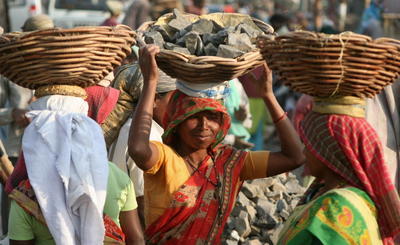In her resignation speech, Gillard graciously observed that her being a female prime minister didn’t explain everything about what happened, nor did it explain nothing; but it did explain some things. She added that it was ‘for the nation to think in a sophisticated way about those shades of grey’. She was absolutely confident that it would be easier for the next woman and the woman after that and the woman after that. And she was proud of that.
Others saw the experience very differently. Anne Summers, a leading Australian advocate for women’s rights, commented:
So the next time your child comes home complaining about being bullied in the schoolyard, you will have to say, ‘Suck it up kid, this is the way we are’. The next time you, or your girlfriend or sister or any woman you know complains about sexual harassment at work, you will have to say, ‘Tough tittie, sweetheart, but if the prime minister had to put up with it, so do you’.
And if you are the head of an organisation and find yourself being constantly undermined and disparaged or publicly mocked and belittled by a rival or a predecessor, you will just have to steel yourself against the sabotage, knowing this is the new normal.
And don’t for a moment think if you are a woman and upset that you, say, get paid 17.5 per cent less than the man you work alongside or you’ve been denied promotion yet again that you can complain about this without being accused of unleashing a “gender war”.
No, the rights of women (including the right to even mention these rights) and the prime minister’s rights at work have been thoroughly trashed …
Australia has enjoyed universal female suffrage for more than a hundred years (among the first after New Zealand to introduce it), and from its European settlement has been blessed with modern institutions protecting women’s access to education and other rights. That it is a country now being forced to re-examine its soul on how widely the precept of respect and value for women matches the practice ought to be a deeply humbling national experience. Gillard surely got it right: things won’t be quite the same, one hopes, again.
Considered alongside some of the great social transformations of our times — decolonisation across half the world; the great Civil Rights Movement of the 1960s in the United States — the struggle of lifting women from social and economic subjugation is a task as yet far from finished.
This week’s lead essay from Susan Harris Rimmer reviews a recent United Nations report revealing that violence against women and girls in the Asia Pacific region is occurring at staggering rates with no solutions in sight. ‘Out of the 10,000 men surveyed in Bangladesh, Cambodia, China, Indonesia, Papua New Guinea and Sri Lanka, nearly half reported using physical and or sexual violence against a female partner, and nearly a quarter admitted to rape’.
Harris Rimmer points out that ‘advocates have tried a variety of tactics to push the issue into the realm of high politics of economic growth and global peace and security, including calculating the loss of economic productivity from sexual violence’. ‘A recent CARE study found that the total cost of domestic violence in Bangladesh in 2010 amounted to over US$1.8 billion. This was the equivalent of 12.7 per cent of government spending that year and close to the total government expenditure for health and nutrition. The majority of this cost is borne by survivors and their families’.
‘Regional advocates have also tried to link so-called “private” violence to the failure of sustainable peace-building efforts in post-conflict states, and to focus regional diplomacy on this issue by lobbying for an Ambassador for Women and Girls’.
Harris Rimmer points out that the reaction to the culture of sexual violence in India is perhaps finally beginning to shift these issues into the realm of ‘high politics’ in that country. In the meantime, how men define their identity is crucial to understanding but not excusing violence. There needs to be a deeper conversation about alternate ways to ‘be a man’ that renounce using violence against women and girls. Those who care about understanding the region should be focused on gender equality.
Violence against women is just the darker side of the broader challenge of the subjugation of women’s rights. Inequality in the treatment of women in society and in the workplace is woven deeply still into the fabric of most societies to some degree or other. It is the cause of great sadness and waste at many levels. The direct costs of violence in the countries of South and West Asia are but a small fraction of the costs of failing to use the full potential of women across the workforce and society in positions of political, economic and social leadership in so-called advanced countries like Australia, Japan or South Korea.
The imperative of mobilising the talents and the social strengths of women, in some societies, is a powerful force encouraging change. But however strong the economic and social pressures to stop the waste of women in the workforce or to escape the shame in women’s social subjugation, it is regrettable that this transformation in our social order will demand, the continued courage, determination and leadership of women themselves.

